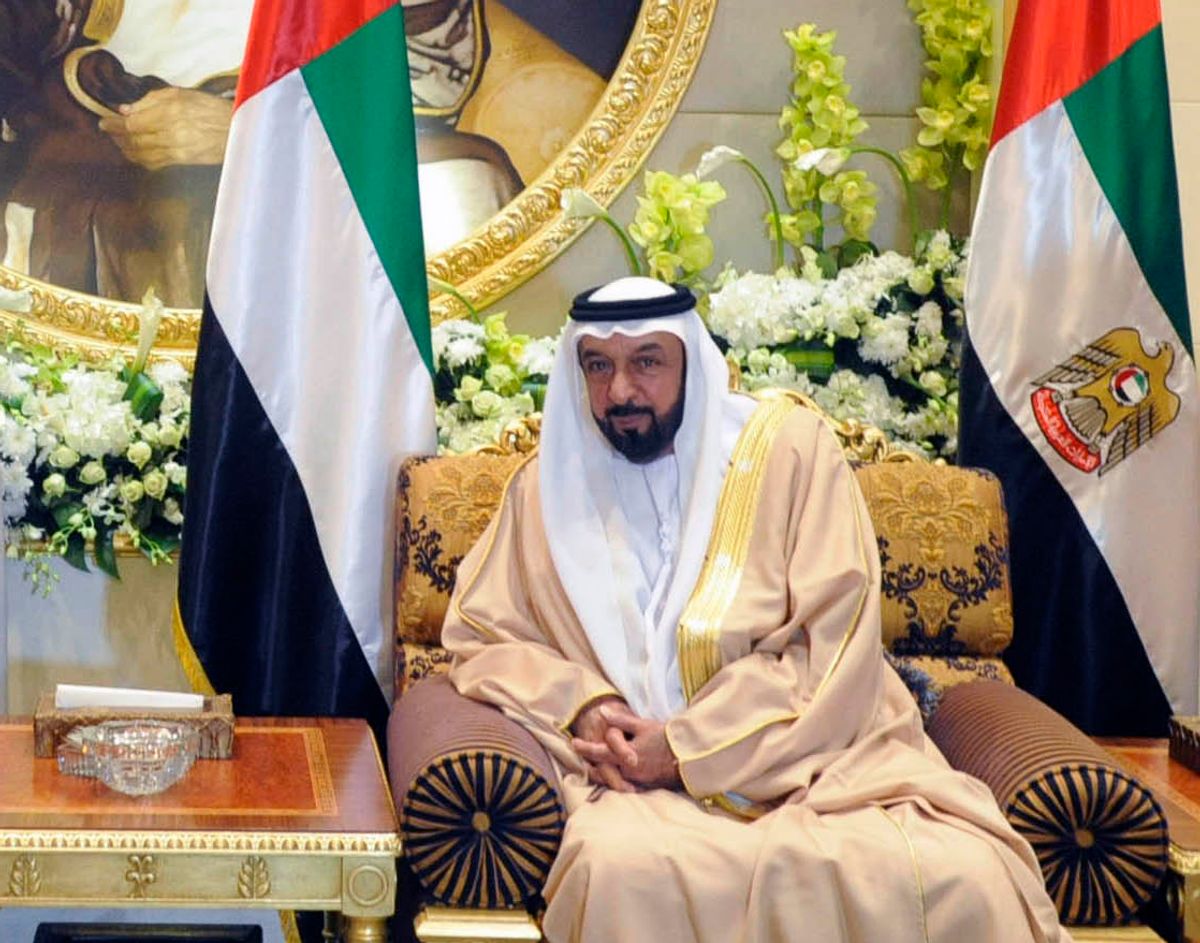Sheikh Khalifa bin Zayed Al Nahyan, the president of the United Arab Emirates who ruled during a time of rapid economic and cultural development, has died at the age of 73. There will be a 40-day mourning period and a three-day suspension of work in all ministries and the private sector beginning today, and flags will be flown at half-staff, the ministry of presidential affairs has announced.
Sheikh Khalifa came to power in 2004 upon the death of his father, Sheikh Zayed bin Sultan Al Nahyan, the founder of the UAE. It was during Sheikh Khalifa’s rule that many of the major cultural projects—that now make up the UAE's vibrant art landscape—came into being, particularly in his home emirate of Abu Dhabi. This includes the Saadiyat museums district that is home to the Louvre Abu Dhabi and the forthcoming Guggenheim Abu Dhabi; educational initiatives such as New York University Abu Dhabi and the Sorbonne University Abu Dhabi; and tourist ventures such as Formula One and the entertainment venues of Yas Island.
The world’s tallest building, the Burj Khalifa in Dubai, is also named after the ruler. Originally meant to be called the Burj Dubai, it was renamed as a gesture of thanks after Abu Dhabi came to the aid of Dubai after the 2008 financial crisis.
Sheikh Khalifa was born in the small inland city of Al Ain, then the capital of the Abu Dhabi emirate, in what was still the British-administered Trucial States. He was educated at Sandhurst in the UK, and became Crown Prince in 1969 after fulfilling a series of governmental positions. He also served as the head of the UAE’s Supreme Petroleum Council and the Abu Dhabi Investment Authority (ADIA), which gave him control over two of the important sources of wealth in the UAE. When his father died, as eldest son he became both the ruler of Abu Dhabi and of the UAE, the federation of seven emirates of which Abu Dhabi is the capital.
In 2014, he suffered a debilitating stroke and stepped back from public duties. His younger brother, Sheikh Mohammed bin Zayed Al Nahyan, has since acted as de facto president. There will likely be little cultural or foreign policy shift after his death, and Mohammed bin Zayed is likewise credited with cultural openness and ambition.
While Sheikh Khalifa presided over a period when Abu Dhabi and Dubai radically climbed in international profile, one of his longest-lasting legacies will likely be that of Emiratisation, which promoted increased employment of Emirati locals in governmental, cultural and education positions. Many of the UAE’s important initiatives are now staffed in key positions by Emiratis.


